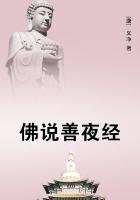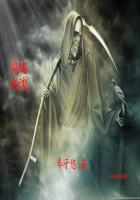"You got him that time,"I laughed,and,being detected,she suddenly blushed.It was this act that drew my attention to her,that defined her as an individual.Before that I had regarded her merely as a shy and provincial girl.Now she was brimming with an unsuspected vitality.Acertain interest was aroused,although her shyness towards me was not altered.I found it rather a flattering shyness.
"It's Hugh,"she explained,"he's always trying to be funny.Speak to Mr.Paret,Hugh.""Why,that's my name,too,"I said.
"Is it?"
"She knocked my hat off a little while ago,"said Hugh."I was only getting square.""Well,you didn't get square,did you?"I asked.
"Are you going to speak in the tows hall to-night?"the boy demanded.Iadmitted it.He went off,pausing once to stare back at me....Maude and I walked on.
"It must be exciting to speak before a large audience,"she said."If Iwere a man,I think I should like to be in politics.""I cannot imagine you in politics,"I answered.
She laughed.
"I said,if I were a man."
"Are you going to the meeting?"
"Oh,yes.Father promised to take me.He has a box."I thought it would be pleasant to have her there.
"I'm afraid you'll find what I have to say rather dry,"I said.
"A woman can't expect to understand everything,"she answered quickly.
This remark struck me favourably.I glanced at her sideways.She was not a beauty,but she was distinctly well-formed and strong.Her face was oval,her features not quite regular,--giving them a certain charm;her colour was fresh,her eyes blue,the lighter blue one sees on Chinese ware:not a poetic comparison,but so I thought of them.She was apparently not sophisticated,as were most of the young women at home whom I knew intimately (as were the Watling twins,for example,with one of whom,Frances,I had had,by the way,rather a lively flirtation the spring before);she seemed refreshingly original,impressionable and plastic....
We walked slowly back to the house,and in the hallway I met Mrs.
Hutchins,a bustling,housewifely lady,inclined to stoutness,whose creased and kindly face bore witness to long acquiescence in the discipline of matrimony,to the contentment that results from an essentially circumscribed and comfortable life.She was,I learned later,the second Mrs.Hutchins,and Maude their only child.The children of the first marriage,all girls,had married and scattered.
Supper was a decorous but heterogeneous meal of the old-fashioned sort that gives one the choice between tea and cocoa.It was something of an occasion,I suspected.The minister was there,the Reverend Mr.
Doddridge,who would have made,in appearance at least,a perfect Puritan divine in a steeple hat and a tippet.Only--he was no longer the leader of the community;and even in his grace he had the air of deferring to the man who provided the bounties of which we were about to partake rather than to the Almighty.Young George was there,Mr.Hutchins's nephew,who was daily becoming more and more of a factor in the management of the mills,and had built the house of yellow brick that stood out so incongruously among the older Hutchinses'mansions,and marked a transition.I thought him rather a yellow-brick gentleman himself for his assumption of cosmopolitan manners.His wife was a pretty,discontented little woman who plainly deplored her environment,longed for larger fields of conquest:George,she said,must remain where he was,for the present at least,--Uncle Ezra depended on him;but Elkington was a prosy place,and Mrs.George gave the impression that she did not belong here.They went to the city on occasions;both cities.
And when she told me we had a common acquaintance in Mrs.Hambleton Durrett--whom she thought so lovely!--I knew that she had taken Nancy as an ideal:Nancy,the social leader of what was to Mrs.George a metropolis.
Presently the talk became general among the men,the subject being the campaign,and I the authority,bombarded with questions I strove to answer judicially.What was the situation in this county and in that?
the national situation?George indulged in rather a vigorous arraignment of the demagogues,national and state,who were hurting business in order to obtain political power.The Reverend Mr.Doddridge assented,deploring the poverty that the local people had brought on themselves by heeding the advice of agitators;and Mrs.Hutchins,who spent much of her time in charity work,agreed with the minister when he declared that the trouble was largely due to a decline in Christian belief.Ezra Hutchins,too,nodded at this.
"Take that man Krebs,for example,"the minister went on,stimulated by this encouragement,"he's an atheist,pure and ******."A sympathetic shudder went around the table at the word.George alone smiled."Old Krebs was a free-thinker;I used to get my glasses of him.He was at least a conscientious man,a good workman,which is more than can be said for the son.Young Krebs has talent,and if only he had devoted himself to the honest practice of law,instead of stirring up dissatisfaction among these people,he would be a successful man to-day."Mr.Hutchins explained that I was at college with Krebs.
"These people must like him,"I said,"or they wouldn't have sent him to the legislature.""Well,a good many of them do like him,"the minister admitted."You see,he actually lives among them.They believe his socialistic doctrines because he's a friend of theirs.""He won't represent this town again,that's sure,"exclaimed George.
"You didn't see in the papers that he was nominated,--did you,Paret?""But if the mill people wanted him,George,how could it be prevented?"his wife demanded.
George winked at me.
"There are more ways of skinning a cat than one,"he said cryptically.
"Well,it's time to go to the meeting,I guess,"remarked Ezra,rising.
Once more he looked at his watch.














